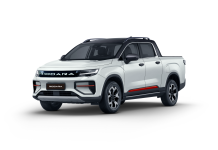Following its acquisition of self-driving truck company, Otto, earlier this year, Uber in the United States aims to service the long-haul sector with a new division dubbed Uber Freight.
Uber’s CEO and co-founder, Travis Kalamick, says the immediate aim is to eliminate the need for a middleman in the transportation process. “Typically, most shipping companies operate through a brokerage firm which arranges transportation of goods, usually taking a commission of between 15% and 20%,” he says.
In the long term the company aims to run a fleet of autonomous vehicles equipped with Otto’s self-driving kits, further reducing costs. Otto’s expertise lies in the retrofitting of radar, camera and laser systems that enable a wide variety of truck brands to be autonomously driven.
The company recently completed its first autonomous delivery of Budweiser beer, traveling from Fort Collins to Colorado Springs at an average speed of 89km/h. Though a driver was in the cab, the majority of the 190km journey was completed without his intervention.
“He took control only in inner city environs and on highway on and off ramps. For the rest of the time, the truck drove itself,” says Otto’s co-founder, Anthony Levandowski, a former self-driving engineer at Google.
A spokesman for Budweiser, part of the Anheuser-Busch group, says the experiment shows that autonomous drive technology can work effectively in the real world. “We will certainly look at using self-driving trucks for deliveries in future,” he says.
Otto’s typical self-driving kits cost about $30 000 (about R404 650) to fit.















